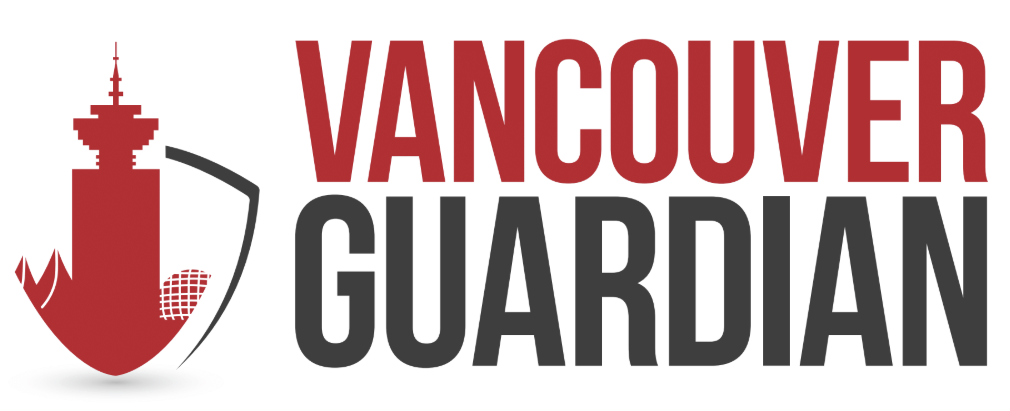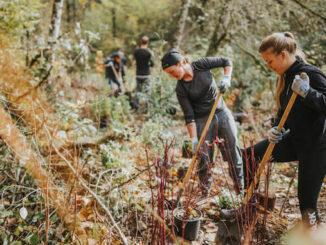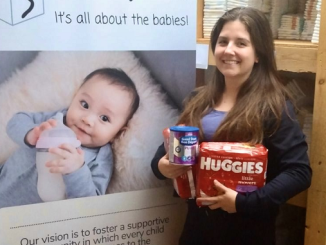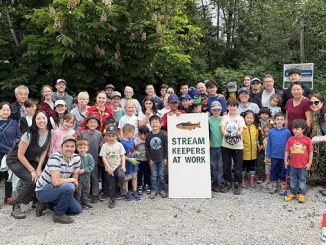Jackie Hildering, co-founder of the Marine Education and Research Society (MERS) and Humpback whale researcher, is on a mission to protect marine ecosystems and raise awareness about the critical role of whales in environmental health. Based on northern Vancouver Island in the Territories of the Kwak̕wala-speaking Peoples, MERS combines research, education, and marine mammal response to tackle issues like entanglement, vessel collisions, and climate change impacts.
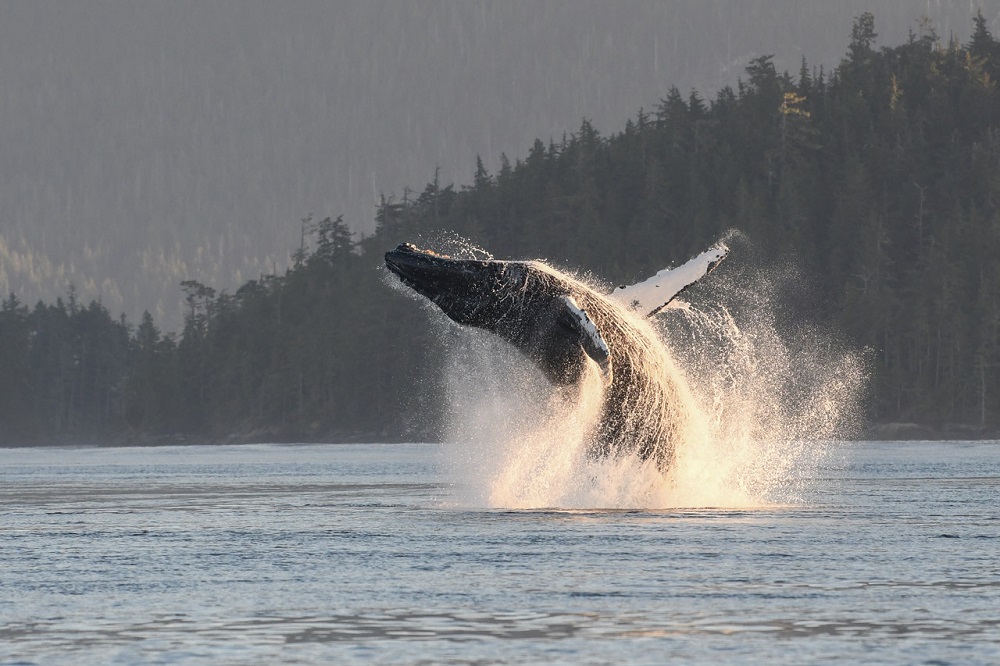
Describe your charity/non-profit/volunteer work in a few sentences.
The Marine Education and Research Society (MERS) is dedicated to promoting conservation and understanding of marine ecosystems. Our work as whale researchers and marine mammal responders directly informs our education efforts and how we strive to inform government policy.
We are based on northern Vancouver Island in the Territories of the Kwak̕wala-speaking Peoples and primarily research Humpback Whales. But our education/conservation efforts extend to all BC marine mammal species. Additional species of focus include Sunflower Stars, Leatherback Turtles, and the two Sunfish/Mola species that belong in BC waters.
What problem does it aim to solve?
We are aimed at increasing understanding of the importance of the marine environment and reducing threats to marine species.
Our Guiding Principles are:
- Research, Education, Response Together – All are equally important and inform the others.
- Science-forward – Our advocacy is informed by solid science, knowledge and our significant experience.
- Solutions Based – Our efforts are guided by presenting solutions for change.
- Whales are Ambassadors for the Ocean – Knowledge of individual whales can inspire positive change.
- Marine Mammals Need a Healthy Ecosystem – We take a holistic approach to conservation.
- Resourceful and Nimble – We take action swiftly and address complex issues.
- Community Building – Conservation needs many champions; together we create change.
When did you start/join it?
MERS became a registered charity in 2010. Our work proceeds that date.
What made you want to get involved?
It was the comeback of Humpback Whales post-whaling that catalysed the formation of the Marine Education and Research Society. We were working on the ocean around northeast Vancouver Island and witnessed that Humpbacks started to return to the area. We wanted to make this “second chance with giants” count for socio-environmental good. We wanted to know who they were, reduce the threats to them, and increase understanding of their importance to environmental health.
What was the situation like when you started?
We never anticipated how big the “Humpback Comeback” would be as the population both grew and shifted to the coast of British Columbia. We also could not have anticipated how dire the need would be for boater education since baleen whales like Humpbacks are so different than toothed whales like Orca.
In the absence of the large whales due to whaling, many boaters do not realize how these whales do not have biosonar and can be oblivious to the presence of boats and fishing gear; that they can suddenly surface after long dives; that they can be resting or nursing just below the surface; and that they feed here off the coast of BC whereby they are often moving in unpredictable patterns.
It remains the case that too many also do not realize that there are still many ways to kill a whale and how our daily actions can have a positive, or negative, impact.
How has it changed since?
It has become all the more apparent how necessary it is to PREVENT collision and entanglement.
To close the gap in knowledge we have:
- Undertaken research to support the need to reduce the threats of collision and entanglement to Humpbacks by studying the scars of survivors.
- Developed the “See a Blow? Go Slow!” education campaign to increase whale and boater safety.
- Provided Marine Mammal Naturalist Courses, First Nations Workshops, and training for Fisheries Officers and other government employees to amplify conservation and safety efforts.
- Unified those who catalogue Humpback Whales off the coast of BC by forming the Canadian Pacific Humpback Collaboration allowing for research collaborations that extend across the North Pacific.
- Engaged extensively with media to increase knowledge and improve ethics around the imagery and language used about marine mammals so that they do not counter what is legal and safe. The pinnacle of this was to work with the BBC and speak for whales in Planet Earth IIl.
- Worked with graduate students to increase knowledge that will benefit the wellbeing of marine species.
What more needs to be done?
It is essential that there is more understanding of the importance of whales and the cold, dark waters of British Columbia, not only to marine species but to the wellbeing of humans across the globe. And there needs to be action that reflects this knowledge and works to reduce the threats of entanglement, collision, and a changing climate.
Humpbacks feed here. They lose up to half their body mass in the warm water breeding grounds where there is little to no food for them. They import nutrients from the cold water to the warm water when they excrete.
The cold, current rich water is where there is more plankton and thereby more food and oxygen production and carbon absorption. When they defecate, the whales fertilize the algae leading to more productivity and less carbon.
We need whales and need to act realizing how important they are as indicators of environmental health and human values.
How can our readers help?
Please know how your daily actions impact the well-being of whales and the environment for which they are ambassadors. Decisions around how we buy, vote and consume energy have far-reaching impacts from influencing how many boats are on the water and where they are, to shaping government policies and sustainability initiatives.
It is so helpful if more people stay informed and help with education. Please sign up for our newsletter to stay up to date on research and educational messaging.
Further direct actions that help our work include modelling safe and legal boater behaviour and using the Whale Warning Flag; sponsoring a Humpback Whale; supporting our annual auction and Ocean Store; sponsoring a “See A Blow? Go Slow!” sign; joining a fund-raising trip and, of course, providing donations. In particular, monthly donations are of help in allowing us to budget and provide matching funds in grant applications.
Do you have any events coming up?
· 2025 Marine Mammal Naturalist Courses – https://mersociety.org/courses-events
· Free online Whale-Safe Boating Course – sign up for alerts for when this will be available https://signup-can.keela.co/boater-course-alert-list
· Annual auction of sustainable and educational goods = April 10 to 13, 2025.
· We will be scheduling online and in-person presentations in the new year. Stay up to date with the newsletter.
Where can we follow you?
Instagram | Facebook | Sign up for our newsletter
PAY IT FORWARD: What is an awesome local charity that you love?
Our dear friends and data contributors at OrcaLab
